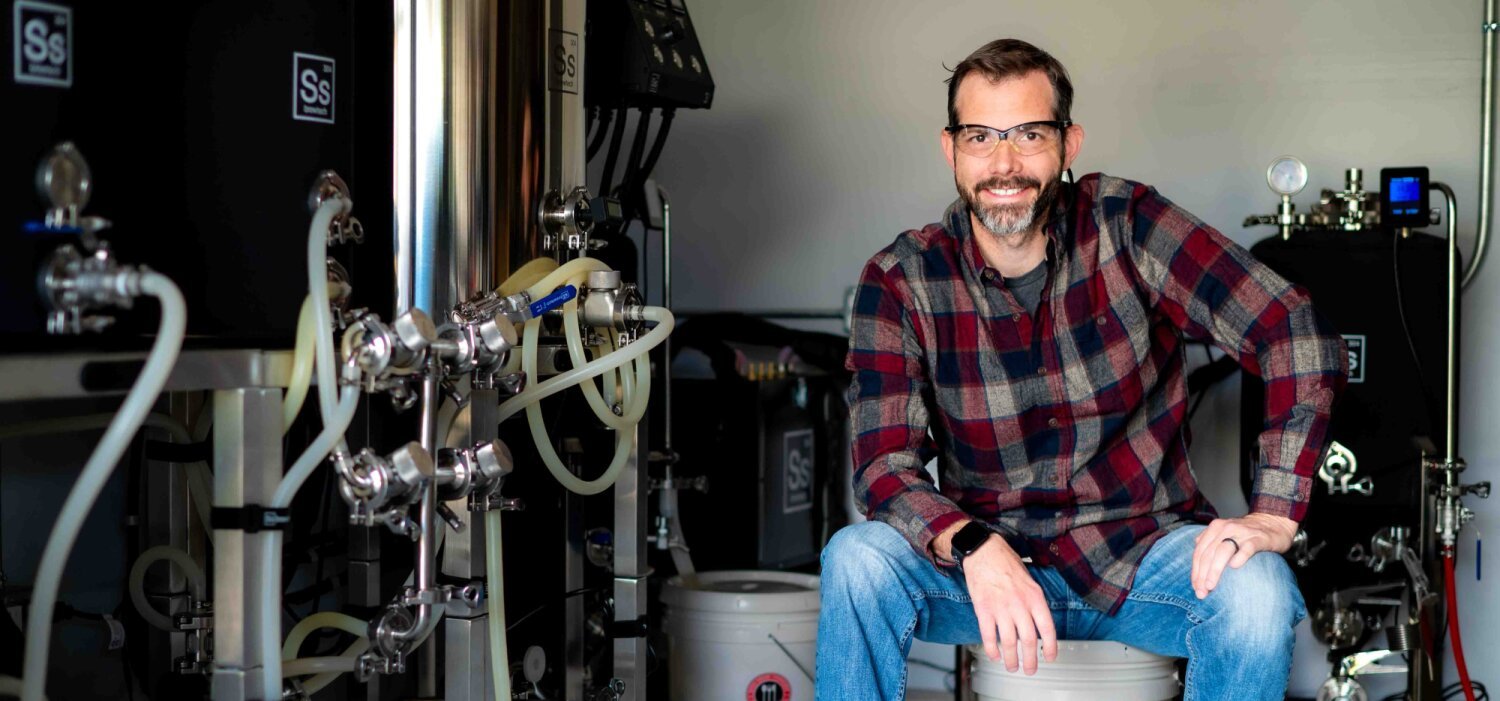Humans are no strangers to kicking back with a cool pint of beer. The Ancient Egyptians, for example, had a hankering for beer that was a little bit tart, almost like a modern-day gose, a lemony beer from Germany. Homer, the Ancient Greek poet, spoke of a beverage called κυκέων (pronounced "kee-kay-own), which was a mixture of grape wine and fermented grains.
But exactly how old is beer?
Old, says Rupp. Really, really old.
Rupp, a.k.a. the “Beer Archaeologist,” has arguably one of the tastiest jobs in academia. He travels the world to learn how ancient cultures made beer, then recreates those recipes in a research brewery in his garage. Currently, he’s aging two variations of Homer’s Greek libation, which, Rupp said, are higher in alcohol than traditional beers.
To date, the oldest known evidence of beer brewing comes from a cave in Israel. Residents of Raqefet Cave used open mortars in the bedrock to crush and soak plant starches, transforming them into sugars—what brewers today call the mashing process. They then fermented those sugars in containers made from fibers.
The kicker: The Raqefet Cave site dates back to around 11,000 BCE, which makes beer, as far as we now know, about as old as agriculture itself.
Defining beer
Such ancient sites also challenge what hop-heads might consider beer. Today’s brews, Rupp noted, are mostly made from cereal crops like barley, wheat or rice. But residents of Raqefet Cave made their beverages from a mix of wild-harvested grains and other plants like tubers and fruit.
More modern-tasting beer, the kind American consumers would be familiar with, at least, emerged, in part, in Bavaria in the 15th century.
Rupp believes we should not put limits on what counts as beer—he defines it only as a drink that is brewed then fermented. That way, brewers can continue to experiment with wild flavors like peach sours, chocolate mole stouts and even, yes, ancient wine-beer hybrids.



Old enough to drink?